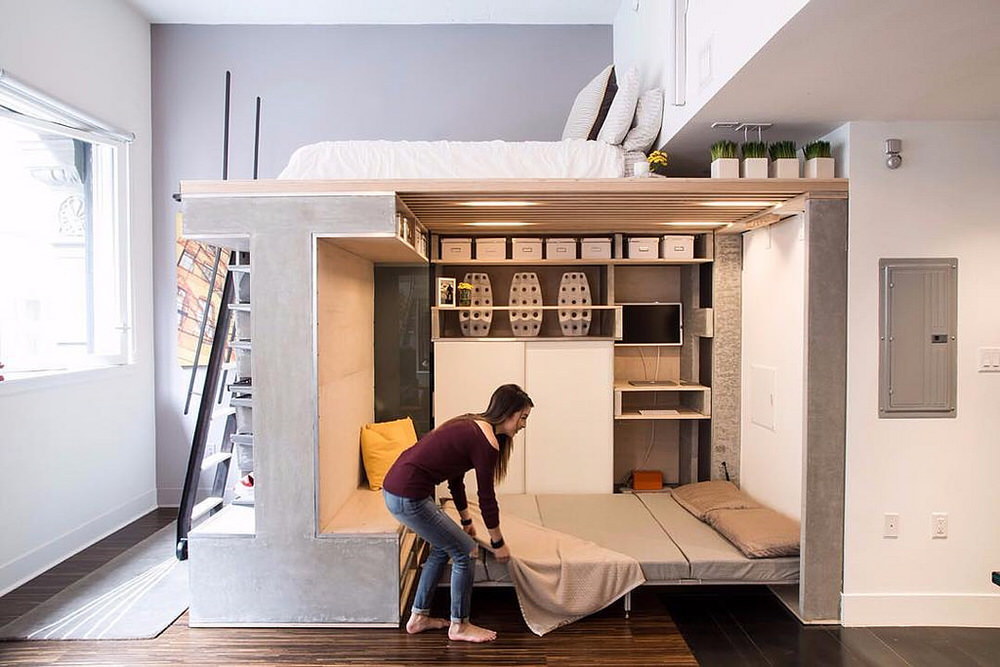Picture the scene. You’re sitting on the sofa, watching TV. You can feel your eyes burning a little because you’re far too close to the screen. Unfortunately, you can’t move the TV back, as there’s no room for the TV stand by the wall. You had to sell the individual chair at came with the sofa because you couldn’t shut the door when it was in the room. You’re holding a glass of lemonade in your hand. Since you’ve moved the coffee table to make more room, you’ve got nowhere to put your put. Ultimately, you dream about the day when you’ll be able to afford a bigger house. If this sounds familiar, you need to learn to make your small home work for you.
A fact, not a fatality
England has the smallest average homes in Europe with an average of only 71.9 square metres. l In fact, many suggest that you need to look abroad if you want to find a larger home within your price range. But the truth is none of this is new. Everybody knows that English homes tend to be tiny, especially in an urban area. Even 1960s builds were small compared to the rest of Europe. So, it’s fair to say that the best approach here is probably to accept the reality of the situation and look for the best solutions to make the most of the space available.
You’re letting useful space go to waste
The way you choose to organise your decor can be detrimental to the way you perceive the space in the room. For instance, awkward spaces, such as under the stairs or an odd corner in the hallway, tend to be ignored. This is a mistake that can be costly: you are wasting space. Instead, you could look for tailor-made storage solutions to fit your room. The area under the stairs could be the perfect shoe racks arrangement.
No more empty room!
There is more room in your home than you care to admit. Buildings with an attic, for instance, could benefit from a loft conversion project. You could create an additional bedroom, or even a home office if you’re a remote worker. Similarly, if the basement isn’t used, why not transform it into a new room? A basement with windows can be perfectly habitable as a bedroom. A fully submerged basement can be modified to receive direct sunlight. In other words, thinking outside the box is what can change your small home into a comfortable property.
Shop smartly, or not at all
Furniture in small spaces needs to be multifunctional. You can’t afford to waste space with an antique set of chairs that serves only one function. So transform your sofa into a bed, while using drawers to store extra bedding. A bookshelf that can be used as a desk, it’s also the best of both worlds for a tiny room! In short, you need to be smart to make the most of each item.
In conclusion, your journey to a better home starts with the realisation that England’s houses are smaller than the rest of Europe. Once you’ve accepted that, you can work your way towards space-saving storage, smart conversions and multifunctional settings. Your organised home will never feel small again! And you could even consider some Feng Sui to help channel positive energies and make your home feel even better.
*This is a collaborative post*
